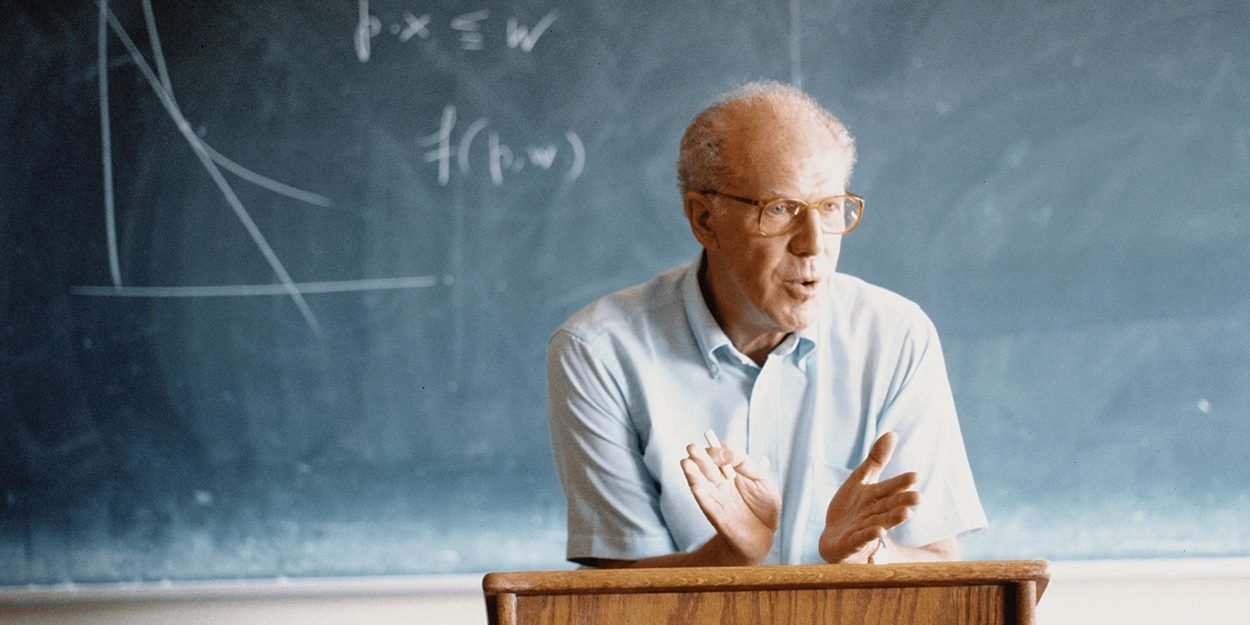Harold Demsetz, a renowned American economist, was a professor of economics at the University of California, Los Angeles (UCLA), where he made significant contributions to the field of economics. He is regarded as a key figure in the Chicago school of economic theory and one of the pioneers of the New Institutional Economics approach.
Harold Demsetz is considered one of the founders of the field of managerial economics and is known for his work in developing the property rights theory, which is widely used in the field of law and economics. Although he did not use game theory, his writings on topics such as corporate theory, anti-trust policy, and business regulation have established him as an important figure in the field of industrial organization. If you are interested in learning more about him, keep reading this article on Zatrun.com.
Who is Harold Demsetz?
Harold Demsetz was born in 1930 in West Side, Chicago. His family was of Jewish descent and had immigrated from Eastern and Central Europe. Harold Demsetz graduated with a degree in economics from the University of Illinois in 1953. He then pursued an MBA and a PhD from Northwestern University, where he began publishing articles in the Econometrica and Journal of Political Economy journals.

Harold Demsetz started his career as a professor of economics at the University of Michigan in 1958. He later moved to UCLA in 1960 and the University of Chicago Graduate School of Business in 1963. He returned to UCLA’s Department of Economics in 1971, where he served as the department’s chair from 1978-1980.
From 1986 to 1995, he held the Arthur Andersen UCLA Alumni Chair in Business Economics. In addition to his academic work, Demsetz was affiliated with the Center for Naval Analyses and the Hoover Institution. Demsetz was a member of the American Academy of Arts and Sciences, director of the Mont Pelerin Society, and president of the Western Economics Association in 1996.
His Contributions to Economics
Harold Demsetz is best known for his work in the field of property rights theory, which he developed in the late 1960s and early 1970s. This theory has become an important part of the field of law and economics, and it focuses on the ways in which property rights can be used to allocate resources efficiently.

Demsetz also made important contributions to the field of industrial organization, particularly in the areas of corporate theory, anti-trust policy, and business regulation. He believed that firms were not merely passive entities that responded to market conditions, but rather active agents that could influence market outcomes. Harold Demsetz’s work has been instrumental in shaping the field of industrial organization and has helped economists understand the ways in which firms operate in different markets.
In addition to his work in the field of property rights theory and industrial organization, Demsetz also made important contributions to the field of economics more broadly. He was an early critic of the idea that government intervention could always improve economic outcomes, and he argued that government policies could often have unintended consequences. His work on the “nirvana fallacy” has become an important concept in the field of public policy.
Harold Demsetz’s Works
- 1967, “Toward a Theory of Property Rights,” American Economic Review.
- 1968, “Why Regulate Utilities?” Journal of Law and Economics.
- 1969, “Information and Efficiency: Another Viewpoint,” Journal of Law and Economics.
- 1972, (with Armen Alchian, “Production, Information Costs and Economic Organization”, American Economic Review.
- 1973, “Industry Structure, Market Rivalry and Public Policy,” Journal of Law and Economics.
- 1974, “Two systems of belief about monopoly,” in H. Goldschmid, et al., eds., Industrial Concentration: The New Learning, Boston: Little Brown, also chapter 7 in, Demsetz, Harold. Efficiency, Competition, and Policy. Cambridge MA: Basil Blackwell, 1989.)
- 1979, “Accounting for Advertising as a Barrier to Entry,” Journal of Business.
- 1982, Economic, Legal, and Political Dimensions of Competition.
- 1988, The Organization of Economic Activity, 2 vols. Blackwell. Reprints most of Demsetz’s better known journal articles published as of date.
- 1994, (with Alexis Jacquemin). Anti-trust Economics: New Challenges for Competition Policy.
- 1995, The Economics of the Business Firm: Seven Critical Commentaries.
- 1997, “The Primacy of Economics: An Explanation of the Comparative Success of Economics in the Social Sciences” (Presidential Address to the Western Economics Association), Economic Inquiry.
- 2011, “From Economic Man to Economic System: Essays on Human Behavior and the Institutions of Capitalism”












